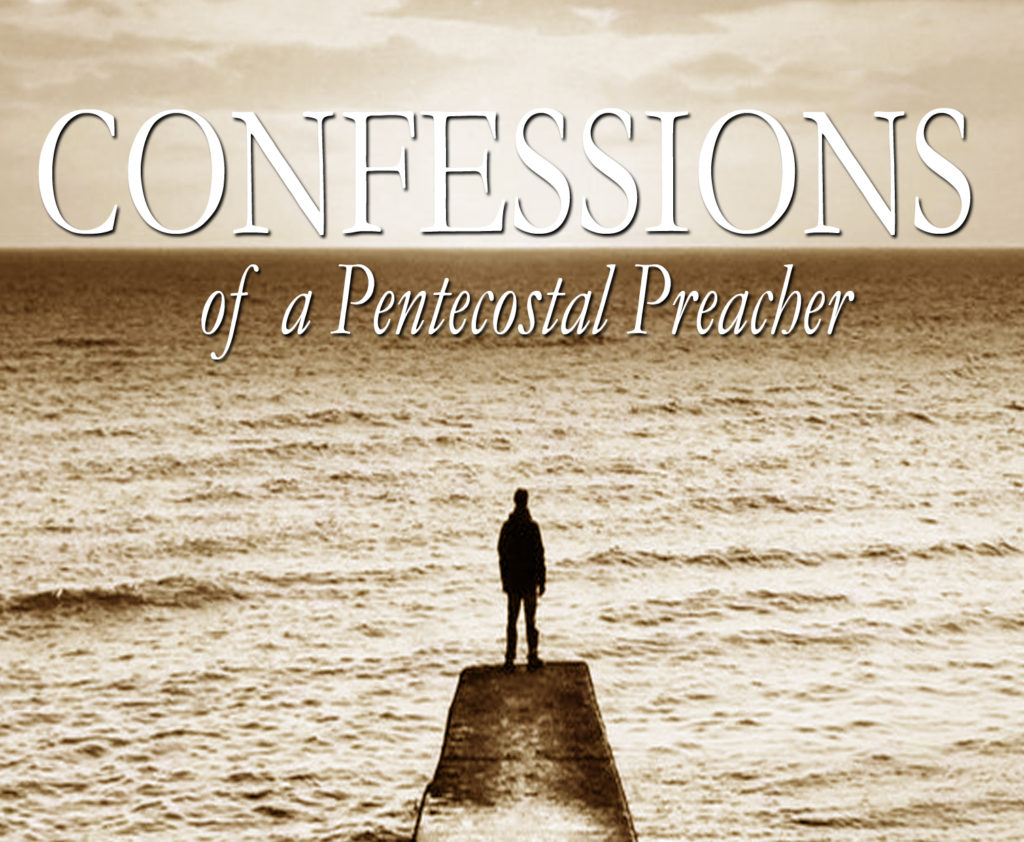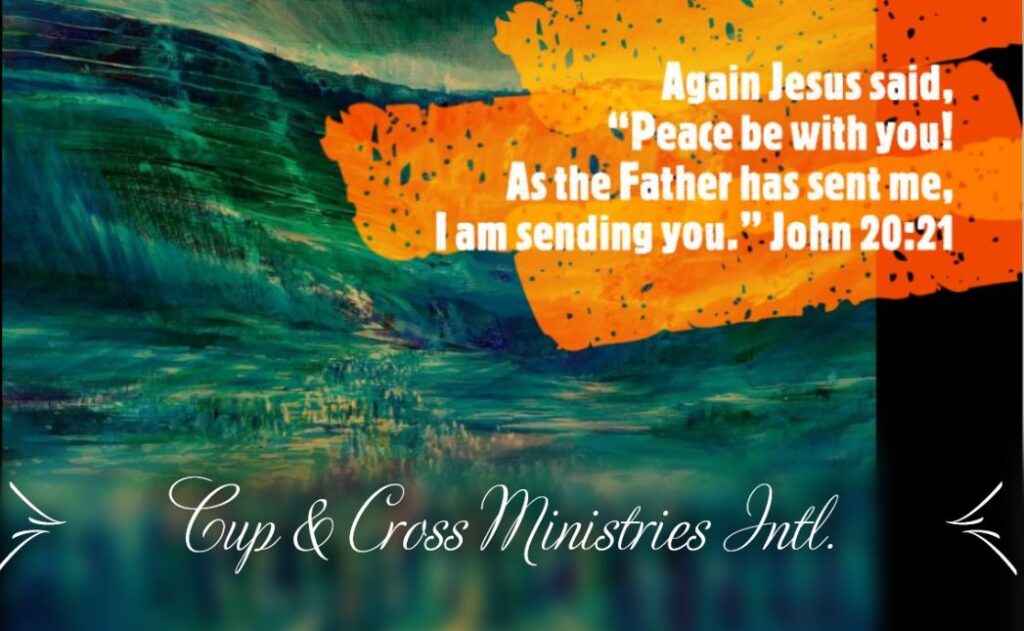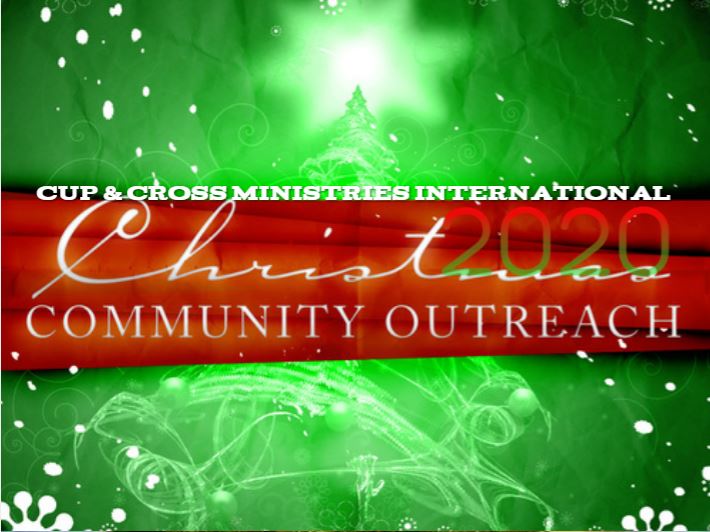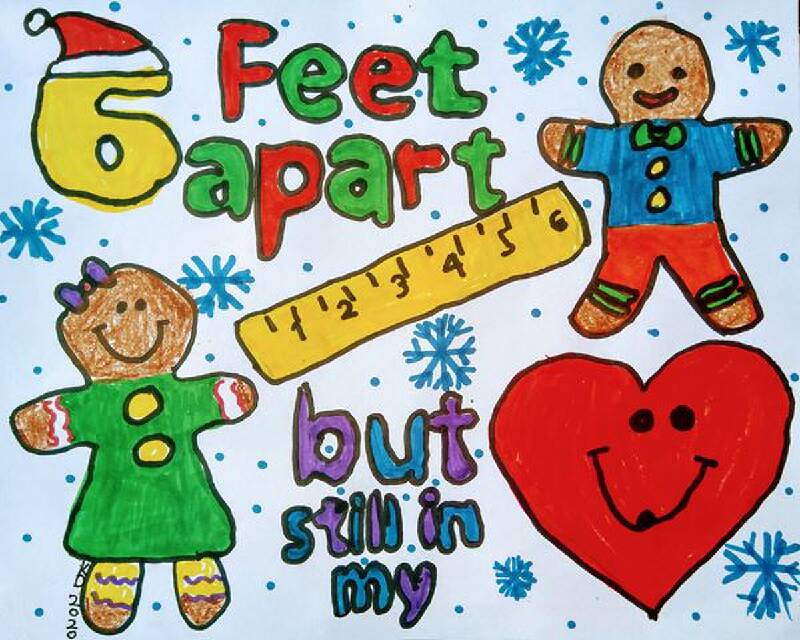30 Years of Miracles: 2012
MAKING a MOVE that MATTERS
In many ways, 2012 was an off-year.
 The 2012 elections finalized President Obama in his second term in office. This became one of the reasons we authored Behind the Wall: Obama on Marxism and Pentecostal Identity. All and while, the whole world appeared to be off with the widely spreading Mayan Calendar of untrue “prophecy.”
The 2012 elections finalized President Obama in his second term in office. This became one of the reasons we authored Behind the Wall: Obama on Marxism and Pentecostal Identity. All and while, the whole world appeared to be off with the widely spreading Mayan Calendar of untrue “prophecy.”
In Cleveland, the ministry of Perry Stone announced a move of revival eastward toward the North Carolina mountains where the Church of God had first begun a century ago. As a confirmation, Rod Parsley teamed with a local TN church for the 12.12.12 BLESSING event. We also were able to participate in the 2012 America for Jesus campaign that was comprised by many smaller revival events.
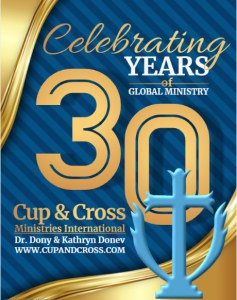
But among anything else, 2012 was a mission test!
With the rising political tensions in Bulgaria, our churches were put into a new demographic predicament. One that was going to overtake the spiritual reality on the Balkans until the new Bill of Confessions was voted by Parliament on the last day of 2019. A president that changed the reality of evangelicals in Bulgaria for the foreseeable feature.
Preparing for this with unwilling anticipation, we were able to print two Bulgarian versions of the Bible in 2012. The 1871 Constantinople Bible which was the first whole Bulgarian translation of the Bible, and its 1940 revision, which was later smuggled in the country and used by evangelical churches under the Communist Regime.
With the end of the year approaching and anticipation growing over the 12.12.12 date we launched our annual Revival Harvest Campaign. In the midst of series of revivals, we were led to make a move that mattered even more. Though, the realization of its vital importance was revealed only seven years later. Looking back now, it is clear how the leadership of the Spirit had prepared it all to the smallest detail. As one final door for ministry unexpectedly opened in 2012, we ended the year preaching in Chichen Itza and though the End of the World did not happen just yet, our last revival event for the year finished with a multitude of miracles.
This book should have been published seven years ago in 2013. Its original subtitle was going to read “7 Years in Bulgaria.” Instead, it took seven years to finish it with all documents, research archives and new cases. Now, it is finally here and it finally reads like a story – not just choppy interviews, deposition documented testimonies or court records, but a story of struggle, strength and solitude. A story of life and a story of us.
1995-96 The establishing of the first Bulgarian Church of God in Chicago and its first split
2000-01 The contracted building of the ministry center for the Central Church of God in Sofia
2002-03 The church split in Southaven and what followed next
2005-06 The post-communist split of the Bulgarian Church of God and consecutive sub-denominations
2010-13 The social media network that cost us millions (of souls)
2016 The vote that forced to kill a church
2019-20 The sale of the ministry center for the Central Church of God in Bulgaria
READ: CONFESSIONS of a Pentecostal Preacher
CONFESSIONS of a Pentecostal Preacher
To Mark Alan
We know not why good people have to die,
but we do know we must tell their story…
Chapter I: Beyond the Church and into God
Be without fear in the face of your enemies.
Be brave and upright that God may love thee.
Speak the truth always, even if it leads to your death.
Safeguard the helpless and do no wrong.
That is your oath.
~Kingdom of Heaven (2005)
Separation of church from politics of false religiosity
The phone rang heavy and long. It was 4 AM in Bulgaria, but I was already up. A friend on the other end of the line was calling from South Carolina with a warning of some bad situation. The following morning, I was going to be contacted by the Director questioning why we were ministering in churches outside of our denomination.
The truth was we had ministered in some 300 local churches across the Balkan country of Bulgaria crossing all denominational boundaries and gathering youth from just about every confession. God had used us not only to reach and minister and to lead, but to step into an untouched spiritual realm, to undertake an unfamiliar ministry paradigm and to approach a brand new dimension of reality where He was to be the center of it all. And we had obeyed without questions. Now it was time to pay the price!
* * *
Our denomination, the one to which I remain both critically loyal and loyally critical, spreads over some five generations. Through its century old existence, the struggles and tension between theology and praxis has been in the center. And there, in the very essence of Pentecostalism itself, while some are always celebrating and being celebrated in the office or temple, others are always pushed in the periphery of normal life, hidden from the world behind closed doors and seeking a much deeper experience with God.
These modern day mystics are not only forgotten, but often forbidden. For their riot for righteousness cannot be conceived, contained and controlled by the religious norms of organized officiality. They speak as prophets to a world they so fervently try to escape from, about a reality that does not exist in the normal believer’s mindset. A stage of spirituality that cannot be preached without being lived in the social existence. And a relationship of God that goes far beyond common relationism and into God himself. That God, Who does not abide in offices and temples, but on the cross outside of the city walls…
But I knew nothing of this until that cold winter morning when the phone rang through darkness of the night. Knowing what is coming, rarely changes what we have done to get here.
7 Years in Bulgaria: CONFESSIONS of a Pentecostal Preacher
by Dony K. Donev, D.Min.
Upcoming Releases for United States (October, 2020)
30 Years of Miracles: 2011
Our ministry in 2011 and the years that followed is better understood in the context of the year 2010, which became formative for the next decade not only for the work of Cup & Cross International, but the Church of God in Bulgaria as a whole.
Our work in 2010 began with ministry in cold winter Bulgaria. The dealings there, especially with the last days of the Minister Center in Sofia, are already subject of other writings. The second history tour among Bulgarian churches in North America followed in the Spring with the book on Ivan Voronaev presented at SPS in Minneapolis, BibleTech in California as well as several church services there and then in Arizona and Nevada. The Bulgarian congregations counted 14 strong at that time, though now most of these have dissolved into other Slavic or even American ministries. Nevertheless, in light of the 2021 pandemic a decade later, 2010 was the last one to report a proper count for these active Bulgarian congregations.
Returning to Bulgaria by the summer was marked with an intense month of services followed by our ministry visit to Cyprus. One of our students from the Bulgarian Evangelical Institute had started churches in six cities on the small Mediterranean island. We ministered twice a day, plus small team leadership training once daily, for several weeks with a large conference planned for the final weekend. The power of God became so evident at times, that our very perspective on deliverance ministry was tremendously changed. Three couples that served as deacons in the churches all struggled with not being able to have children. Today, they all have children that were born after prayer in 2010.
The miracle events that followed opened tremendous opportunity for the Bulgarian churches on Cyprus as well. After timely restructuring in a couple of years, they are still enjoying liberties to minister even during the pandemic period in 2020-21. In fact, the Mediterranean tour ministry of 2010 was so impactful that it opened doors for ministry on Malta, and several Spanish and Portuguese islands where pushed by the economic crises Bulgarian migrants had formed communities of faith. And ultimately determined the next decade of ministry on the High Seas.

With this in mind, 2011 followed strong and quick. After the initial holidays services, several revivals and a mission’s conference, we followed with our annual leadership training for the Bulgarian churches in Chicago. The Chicagoland churches had just celebrated their 15 years’ anniversary and the excitement for better times ahead was quite evident. The annual conference was to be held for the first time at the Bulgarian church in Las Vegas and leadership ministry pre-training was very much needed. Looking at it from the distance of another decade in ministry today, the churches who adopted new ministry leadership style are still going strong, while the others were forced to close down for one reason or another.
We were scheduled to return to London later in the Spring for the annual conference of Bulgarian churches and ministries in the EU, which became foundational for the Bulgarian Evangelical Alliance in Europe. Except, in the time between both events the 2011 tornadoes struck Cleveland. The damage and the ministry during those days are
preserved in the pictures of each day after the tornado. Let’s just say that being immobilized with all vehicles destroyed by the storm, house and property damages, as well as the overall dramatic change in the context of ministry presented a significant challenge that had to be overcome.
Nevertheless, only two weeks after the tornado, we proceeded with the annual conference in London and then back to Bulgaria. Among other ministry projects, we were able to hold the all-denominations ministry camp in the Bulgarian mountains. This particular camp of 2011 is still being recalled today by many young ministers who were called and confirmed for the work of the Harvest.
Cleveland After the Storm: Day 1
Cleveland After the Storm: Day 2
Cleveland After the Storm: Day 3
Cleveland After the Storm: Day 4
Cleveland After the Storm: Day 5
Cleveland After the Storm: Day 6
Cleveland After the Storm: Day 7
This book should have been published seven years ago in 2013. Its original subtitle was going to read “7 Years in Bulgaria.” Instead, it took seven years to finish it with all documents, research archives and new cases. Now, it is finally here and it finally reads like a story – not just choppy interviews, deposition documented testimonies or court records, but a story of struggle, strength and solitude. A story of life and a story of us.
1995-96 The establishing of the first Bulgarian Church of God in Chicago and its first split
2000-01 The contracted building of the ministry center for the Central Church of God in Sofia
2002-03 The church split in Southaven and what followed next
2005-06 The post-communist split of the Bulgarian Church of God and consecutive sub-denominations
2010-13 The social media network that cost us millions (of souls)
2016 The vote that forced to kill a church
2019-20 The sale of the ministry center for the Central Church of God in Bulgaria
READ: CONFESSIONS of a Pentecostal Preacher
CONFESSIONS of a Pentecostal Preacher
To Mark Alan
We know not why good people have to die,
but we do know we must tell their story…
Chapter I: Beyond the Church and into God
Be without fear in the face of your enemies.
Be brave and upright that God may love thee.
Speak the truth always, even if it leads to your death.
Safeguard the helpless and do no wrong.
That is your oath.
~Kingdom of Heaven (2005)
Separation of church from politics of false religiosity
The phone rang heavy and long. It was 4 AM in Bulgaria, but I was already up. A friend on the other end of the line was calling from South Carolina with a warning of some bad situation. The following morning, I was going to be contacted by the Director questioning why we were ministering in churches outside of our denomination.
The truth was we had ministered in some 300 local churches across the Balkan country of Bulgaria crossing all denominational boundaries and gathering youth from just about every confession. God had used us not only to reach and minister and to lead, but to step into an untouched spiritual realm, to undertake an unfamiliar ministry paradigm and to approach a brand new dimension of reality where He was to be the center of it all. And we had obeyed without questions. Now it was time to pay the price!
* * *
Our denomination, the one to which I remain both critically loyal and loyally critical, spreads over some five generations. Through its century old existence, the struggles and tension between theology and praxis has been in the center. And there, in the very essence of Pentecostalism itself, while some are always celebrating and being celebrated in the office or temple, others are always pushed in the periphery of normal life, hidden from the world behind closed doors and seeking a much deeper experience with God.
These modern day mystics are not only forgotten, but often forbidden. For their riot for righteousness cannot be conceived, contained and controlled by the religious norms of organized officiality. They speak as prophets to a world they so fervently try to escape from, about a reality that does not exist in the normal believer’s mindset. A stage of spirituality that cannot be preached without being lived in the social existence. And a relationship of God that goes far beyond common relationism and into God himself. That God, Who does not abide in offices and temples, but on the cross outside of the city walls…
But I knew nothing of this until that cold winter morning when the phone rang through darkness of the night. Knowing what is coming, rarely changes what we have done to get here.
7 Years in Bulgaria: CONFESSIONS of a Pentecostal Preacher
by Dony K. Donev, D.Min.
Upcoming Releases for United States (October, 2020)
Bulgarian Chaplaincy Association and Master of Chaplaincy Program Ministry 2020 Priority Review
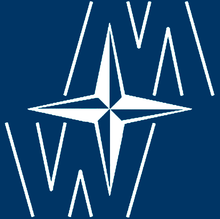 In the midst of the 2020 pandemic, the Bulgarian Chaplaincy Association was able to continue in active field ministry as well as its Master of Chaplaincy Program in affiliation with New Bulgarian University. Another doctoral graduate from the chaplain’s program graduated in 2020 with special focus of ministry in the Eastern part of Bulgaria. The Association has not completed its task yet, namely, legalizing chaplaincy within the Bulgarian armed forces, but major milestones have been accomplished. Our 2006 proposal submitted to NATO’s Manfred Wörner Foundation is being implemented as foundational to the doctrine and direction of the Association, being now used by other fields and states as well.
In the midst of the 2020 pandemic, the Bulgarian Chaplaincy Association was able to continue in active field ministry as well as its Master of Chaplaincy Program in affiliation with New Bulgarian University. Another doctoral graduate from the chaplain’s program graduated in 2020 with special focus of ministry in the Eastern part of Bulgaria. The Association has not completed its task yet, namely, legalizing chaplaincy within the Bulgarian armed forces, but major milestones have been accomplished. Our 2006 proposal submitted to NATO’s Manfred Wörner Foundation is being implemented as foundational to the doctrine and direction of the Association, being now used by other fields and states as well.
As prisoners in Bulgaria were not generally released during the Pandemic, prison chaplaincy continued through the Sofia region office led by one of our students from the Masters’ Program.
Hospital chaplaincy has remained a challenge as many hospitals, especially in mid-Bulgaria, struggled to provide adequate healthcare during the pandemic crises.
International chaplaincy among Bulgarian migrants have continued as allowed by shutdown orders in various countries in the European Union. On several occasions large communities of migrant workers were forced by the economic challenges to return to Bulgaria, which has presented additional opportunities for chaplaincy ministry.
Institutional chaplaincy has been the weakest point as in the past decade, as interweaving religion and business in the Bulgarian context of ministry has remained a strong test for the endurance of chaplaincy. However, the corporate ecosystem in Bulgaria is progressively changing as foreign investors are continuing to establish regional offices and labor opportunities in the country.
Haskovo, Harmanli and the Strandja region toward the Turkish border south of Yambol have been a focal point of chaplaincy among foreign migrants residing in Bulgaria. We have already established relationship with para-church organizations that work successfully among Muslim migrants in the Scandinavian countries. Their experience and training within the Bulgarian context of ministry has been indispensable.
Finally, social involvement through community chaplaincy has been developing well in the past several years, especially in major project areas like the second largest Bulgarian city of Plovdiv, the region of South Bulgaria, along the Black Sea especially in Bulgaria’s largest sea port at Varna, and along the Danube River including the port cities of Silistra, Rousse, Svishtov and all the way to Vidin.
Prophetic Message of Over 30 Years Brings Peace in 2021
On November 9, 1989, the Berlin Wall, the physical representation of the Iron Curtain was brought down. The standing shoot-to-kill orders of the border guards fell. It meant the end of the Cold War, a war which was waged on political, economic, and propaganda fronts and it meant the end of the Communist Regime in Bulgaria.
Seven months prior to this historic occasion, a Danish journalist by the name of Johny Noer along with his family came to Bulgaria traveling in a Pilgrim Convoy to share one message. The message which was declared throughout Communist Bulgaria was not well received and many threats against his family were given to the point of arresting him, confiscating his passport, separating him from his nursing wife and children and escorting them out of the country via separate routs. The outlawed message was: “LET MY PEOPLE GO!” He literally shouted it from the roof tops of open air events in which there were thousands of desperate listeners searching for hope of liberation. This message shook the spiritual foundations of Bulgaria forever.
Exactly 25 years later, our ministry invited brother Noer and his wife to Bulgaria again to proclaim the same message: “LET MY PEOPLE GO!” By miracle, we were successful in getting them into the country even though they had been blacklisted and were not permitted to return. By miracle, we received permission to hold gatherings on election day and by miracle, the funds came just as needed to rent the largest auditorium in the city. The year was 2014 and during one of the many sermons he preached during this revival crusade, along with declaring to “LET MY PEOPLE GO”, a prophetic message was given which was not fully understood until this past year. The message, given in broken English translated into Bulgarian, was exact details of the Corona Virus Pandemic. Astonished by the Word of protection for God’s people, we shared this video clip on social media in 2020. But what astounded us the most was that the video was blocked for containing false information about Covid-19. Over 30 years later this message is still being outlawed by the powers of darkness.
In Exodus 5, when the Israelites brought the words from the Lord and asked to be let go and be able to worship, Pharaoh said, “Who is the LORD that I should obey his voice and let Israel go? I do not know the LORD, and moreover, I will not let Israel go.” But regardless that “Pharaoh” does not know the Lord and forbids worship to the point of arrest and tries to keep God’s people behind the Wall, there is hope in the next part of the story. There is God’s promise for deliverance, the plagues and having to make bricks without straw will be in the past. And no matter the modern-day attempt at censorship, manipulative propaganda or shoot-to-kill silencing orders, we will shout it from the Mountain Tops, “LET MY PEOPLE GO!” We will worship even if we have to go to the wilderness, wherever or whatever that may be. We will shake the spiritual foundations of this country once again.
In the beginning of 2020, the Lord spoke to us what the verse of the year would be for 2021. It is only now that we fully understand its significance. When Jesus appeared to the disciples after His resurrection in John ch. 20, they were hiding behind closed doors in fear. But Jesus came, stood among them and told them “Peace be with you!” This first command for peace and presence calmed fears restoring social order and justice. And in 20:21, Jesus told them again, “Peace be with you”. This second command was a strong imperative salutation to “GO”. Then He breathed on them to receive the Holy Spirit and sent them out as the Father had sent Him.
This year, we are not to live in fear behind closed doors. We shall receive the Resurrecting Power of the Holy Spirit and go out. It is this Power which shall be our covering which Johny Noer spoke of in 1989 and 2014. Today, we have hope of liberation from any Wall, Curtain, Regime or Order. Jesus is amongst us standing undefeated. In 2021, may peace be with you as you stand up to go out declaring “LET MY PEOPLE GO” and do not take no for an answer.
January 1, 2021 Cup & Cross Ministries International, John 20:21
https://www.youtube.com/watch?v=oO3f3vvZSeY
2021
At the end of each year…
At the end of each year, we take time to reflect on where our journey has taken us. Certainly, 2020 will be a year many remember, filled with challenges and opportunities that tested our strength, our resolve, and our ability to problem solve and withstand all storms in life with the power of Pentecost. Although we continue to navigate conditions and situations that impact our ability to meet needs, it is clear that the resilience and perseverance of Kingdom Ministry is like no other.
As news and events shook the world, we united. Our ministry took to social media, online forums and hundreds of live broadcasts around the globe to share resources and ensure continuity of spiritual care and networking. We reminded each other of the importance of spiritual self-check and spiritual self-care. We leaned on each other, offering support and ways to connect, despite the distance. We did not allow circumstance to change schedule and goals. As in the past 30 years of ministry, we did our best to adjust and proceeded as planned regardless of the ever growing difficulties. As time progressed, we became stronger and more adaptive.
As 2020 comes to an end, it is important that we take time to appreciate these connections as well as the support of our partners and co-workers in this ministry. Our fortitude and our collective purpose, firmly rooted in our need for togetherness, for answers, and for personal growth, will see us through.
We thank you for being part of the Cup and Cross global family!
We wish you and your loved ones a safe and wonderful New Year filled with opportunities and promise.
Peace be unto YOU in 2021… (John 20:21)
Christmas Community Outreach 2020 Brings Holiday Cheer
This past Wednesday, thanks to the many volunteers, nearly 200 Christmas gift-bags were delivered to local families in our US, Bulgarian and UK locations. Each bag looked different. Some were filled with candy and a toy while others had either a book of prayers or food. For those families whom the Lord spoke directly to us about, they received a special gift from our ministry partners in Israel. We thank all of those who participated this year and ministered beyond boarders and walls. We wish you a Merry Christmas and pray a special blessing of abundance.
Merry Christmas from ALL of us…
Can Christians celebrate Hanukkah?
 Hanukkah, the Jewish Festival of Lights, began Sunday, a holiday which starts on the 25th of the Jewish month of Kislev and lasts for eight days. In the Gregorian calendar it begins December 2 and concludes December 10 in 2018. Hanukkah is also known as the Feast of Dedication, and while it is not written about in the Old Testament, it was an observance Jesus took part in during his earthly life.
Hanukkah, the Jewish Festival of Lights, began Sunday, a holiday which starts on the 25th of the Jewish month of Kislev and lasts for eight days. In the Gregorian calendar it begins December 2 and concludes December 10 in 2018. Hanukkah is also known as the Feast of Dedication, and while it is not written about in the Old Testament, it was an observance Jesus took part in during his earthly life.
“At that time the Feast of Dedication took place at Jerusalem. It was winter, and Jesus was walking in the temple, in the colonnade of Solomon,” John 10:22-23 recounts.
The holiday is fundamentally about the miracle of God being with the Jewish people during a time of great hardship and persecution.
Christian Hanukkah Tradition
Jews across the world are about to celebrate Hanukkah, the Jewish festival of lights. Few know that Christians also claim the story as part of their tradition.
Adherents of both faiths agree on the basics. About a century and a half after Alexander the Great’s conquests, Israel was ruled by the Seleucid dynasty, established by one of Alexander’s successors. The Seleucid king, Antiochus IV, aggressively persecuted Jews and erected a pagan altar in the middle of the Temple in Jerusalem. A band of Jewish fighters led by Judas Maccabeus mounted a resistance to Antiochus’ forces, and the Maccabees eventually recaptured the Jerusalem Temple.
Jewish literature, compiled by rabbis in late antiquity, preserved and retold these stories. Two Jewish works from the Hellenistic era, known as the First and Second Books of the Maccabees, also inform our understanding of the events. While these works didn’t become a part of the Jewish scriptures, they comprise part of the biblical canon for the Roman Catholic and Orthodox churches.
These Christians focused almost exclusively on the theme of martyrdom. In particular, they were fascinated by a narrative found in 2 Maccabees about an anonymous Jewish woman and her seven sons who allowed themselves to be tortured and killed by Antiochus rather than violate their faith. Early Christian writers understood the Jewish martyrs as role models, who achieved the ultimate goal of escaping this world for a better one. According to Ambrose, the fourth-century bishop of Milan, the mother could have encouraged her sons to avoid death, “but she considered that her maternal love lay in [urging] her sons to a life that is everlasting rather than an earthly one.”
The authoritative story of the Maccabean era in Jewish tradition is quite different. Jewish rabbinical literature in antiquity didn’t focus at all on the Maccabean martyrs in the context of Hanukkah. Instead it emphasized the role of the Jewish fighters and what happened after their victory. Like the Christian retellings, Jewish tradition focused on the partnership between man and God. But rather than locating that partnership in heaven, it identified it here on earth.
Jewish tradition’s emphasis on the Hanukkah miracle of the oil reinforces this point. In a story popularized in American culture by Jewish celebrities like Adam Sandler, rabbinical literature records that when the Jewish fighters finally recaptured the Temple in Jerusalem, they sought to rekindle its seven-branched oil lamp, best known by its Hebrew name, menorah. Although they only had enough oil for one night, it lasted miraculously for eight nights until the Jews were able to procure a new supply. This tradition focuses on temporal existence. The miracle of the menorah allows the Jews to work at resuming their regular lives here on Earth.
While Christian tradition connected the story of the Maccabean era to the Temple’s menorah, it did so in a different way. In praising the Maccabean martyrs, the Syriac Christian writer Severus of Antioch wrote: “Not so [truly] did the candlestick of seven lights which made glorious the temporal Temple give light, as did this woman with the seven human lights, her sons, give light to the Church.” Severus played down the significance of the Temple’s menorah by comparing its seven branches with the seven martyrs who left this world behind.
These two ways of remembering the Maccabees reflect larger differences between modern Jewish and Christian storytelling. Many have noted the deep Christian influence on high fantasy, like “The Lord of the Rings” and “The Chronicles of Narnia.” These epics stage the battle between good and evil in worlds not our own. By contrast, Jewish influence is most conspicuous on the comic superhero genre. The authors of these stories also narrate the struggle between light and darkness. Yet they do so not by imagining new worlds but by reimagining this one.
When Hanukkah arrives and Jews across the globe place menorahs in their windows or in front of their homes, remember that they are not merely commemorating the story of the Maccabees. They are making an important argument about that story and the lessons it holds for society. While a basic element of many faith traditions is that humanity should join with God, the Jewish message of Hanukkah is that such partnership should be anchored right here on Earth.



